Heart, blood vessels and cholesterol
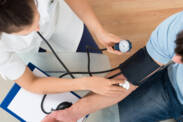
How to fight low blood pressure with lifestyle and food?
Do you get out of bed in the morning with foggy eyes, tinnitus, feeling faint? Is nausea your morning enemy?

Nosebleeds. What are the most common causes and how to stop it?
One of the most common bleeds that we are all familiar with is the epistaxis. It is mainly caused by a large blood supply in the front of the nasal septum at a place called the locus Kiesselbachi. However, it can occur on all the walls of the nasal cavity. Hairlines and veins bleed more often than arteries. Should we be worried about it? When does it become dangerous for us? What are the causes of its occurrence and how to stop it? The answers to these questions can be found in the article.
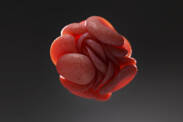
Thrombosis: A disease of the old? It threatens the young too + Causes and manifestations
Vascular thrombosis is a disease or condition that represents a serious medical and social problem. It affects mostly adults, less often adolescents, and children are no exception.

Does your heart pound at rest or after a meal? What can it mean?
When our hearts race during exertion or mental agitation, we usually don't attach any significance to it. But it's not completely normal at rest.

What helps with low blood pressure? Can lemon, herbs or other grandmotherly advice help?
Are you often dizzy, tired and weak? Maybe you also suffer from low blood pressure. So you should also know what you are at risk of and how to help yourself from low blood pressure.

What is travelers' thrombosis: Causes and symptoms? How to avoid it?
Venous thrombosis is a serious and painful disease with a high risk of further health complications. Many factors are involved in its development, one of which is the conditions that arise during prolonged travel. The development of thrombosis in connection with travel is called 'traveller's thrombosis'.

How to prevent cardiovascular disease?
Cardiovascular disease ranks first in morbidity and mortality worldwide. Learn about effective prevention with us.

Untreated hypertension threatens health and life. What are the complications?
High blood pressure goes on for many years, and yet it may not manifest itself in any way. Until the time when health- and life-threatening complications arise.
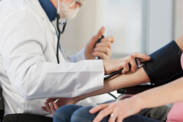
What are the typical symptoms of high blood pressure?
High blood pressure is a disease that can accompany you through life unnoticed. Herein lies its danger. The risk is mainly the outbreak of complications that can threaten health and life.

Blood pressure measurement: what are the principles of correct procedure + 10 principles
Correct measurement of blood pressure is important. If certain principles are not followed, high or low blood pressure can be measured incorrectly.
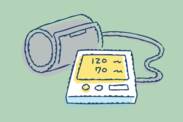
Summary table: what values does low, normal and high blood pressure have?
What is normal, low or high blood pressure? You can compare the measured values in the table below.

Measuring blood pressure, pulse or breathing at home. How to know the values?
Knowing the correct values of vital signs is important for every person. And checking them at home is easier nowadays.
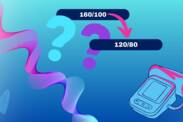
How to reduce high blood pressure without drugs? Just food or tea?
How can high blood pressure be lowered without medication? Several factors are involved in lowering blood pressure, such as diet, limiting alcohol and smoking, but also stress. Sufficient physical activity and weight reduction are necessary.

What is masked hypertension? Normal blood pressure at the doctor, but...
Masked high blood pressure is a possible cause of neglected treatment of hypertensive disease. Measurements at the doctor's office will show normal blood pressure readings. But the reality is different.

What is nocturnal hypertension? How it increases the risk of health complications
High blood pressure causes various health complications. Nocturnal hypertension has been found to make it worse.

What foods are suitable and unsuitable for high blood pressure?
High blood pressure is a disease and you have to learn to live with it. It is classified as a disease of civilization. It is also called the silent killer. The main reason for this name is that high blood pressure does not hurt.
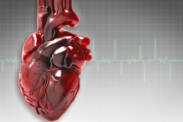
What is life like after a heart attack? Does it limit, cause incapacity for work?
Diseases bring with them various limitations, and not only during their duration. Some diseases and conditions require a permanent change in lifestyle. Myocardial infarction is one of these conditions. Just because someone has overcome it does not mean that they will continue to live as they have been living. The aim is to prevent a recurrence of the disease, which is more likely with each successive heart attack in life. It is therefore necessary to change some habits or bad habits that may have been established.
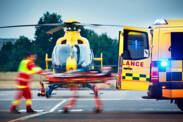
Diagnosis called heart attack: what is the treatment and referral of the patient?
The pre-hospital phase of a sudden-onset heart attack forms an extremely important part of the overall treatment process of the affected person. However, the treatment and referral of the patient to the appropriate medical facility depends on several factors.

How to detect a stroke early?
Stroke, cerebral infarction, ictus, stroke and many other names name a sudden condition occurring in our brain. It is caused by a lack of blood supply to part of the brain, or bleeding. The symptoms in both cases are almost identical. However, they are different in intensity, duration and have disastrous consequences. How to catch the symptoms of a cerebral infarction in time?
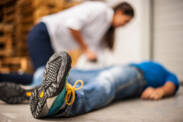
Myocardial infarction first aid + Does chest pain mean a heart attack?
Diseases that are most prevalent among the general population across the country and are a common cause of death are called diseases of civilization. These include diseases of the cardiovascular system (cardiovascular disease).









